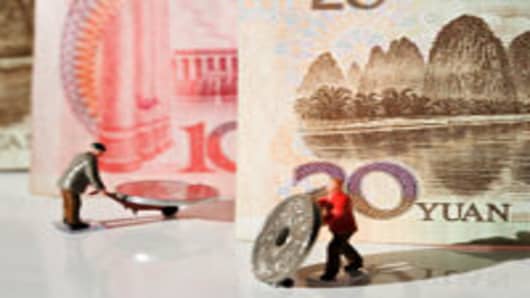China's slowing economy has led to talk of whether the central bank should encourage the yuan to depreciate to support the struggling export sector, but analysts say this would be the wrong medicine.
"Reasons why China shouldn't let the renminbi [yuan] weaken? I can name 3.4 trillion reasons [the value of its forex reserves]," Patrick Chovanec, chief strategist at Silvercrest Asset Management wrote on Twitter on Friday.
Such a move would diminish the global buying power of Chinese consumers and hence their standard of living, Chovanec said, not helping the government's push towards rebalancing away from an export-driven to consumption-led economy.
(Read More: Here's What China Is Secretly Planning for the Yuan)
The yuan is a closely managed currency that is allowed to trade 1 percent either side of a midpoint set by the central bank each day.
Furthermore, a weakening of the yuan would force China to "seek refuge" in a growth model that the country has outgrown, Chovanec said.
[It would] likely trigger U.S. retaliatory sanctions that would cancel any boost to exports from a cheaper currency.
Exports in June came in well below expectations, falling 3.1 percent from a year ago, compared to forecasts for a rise of 4 percent. This was the first decline since January 2012.





